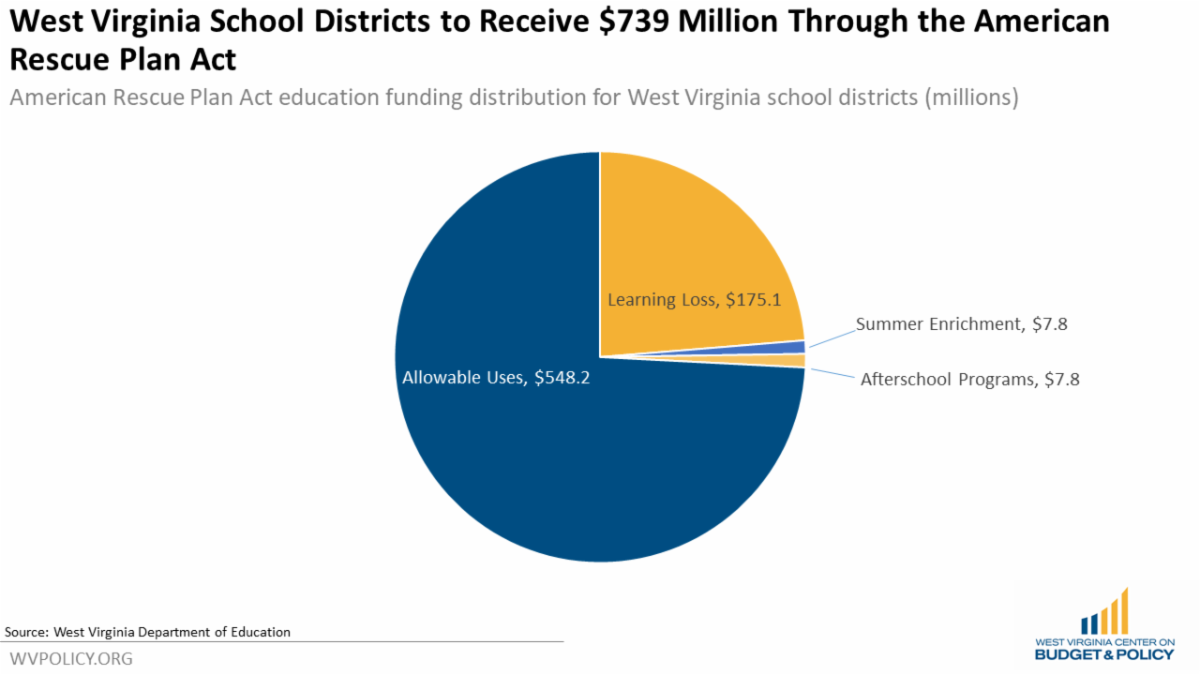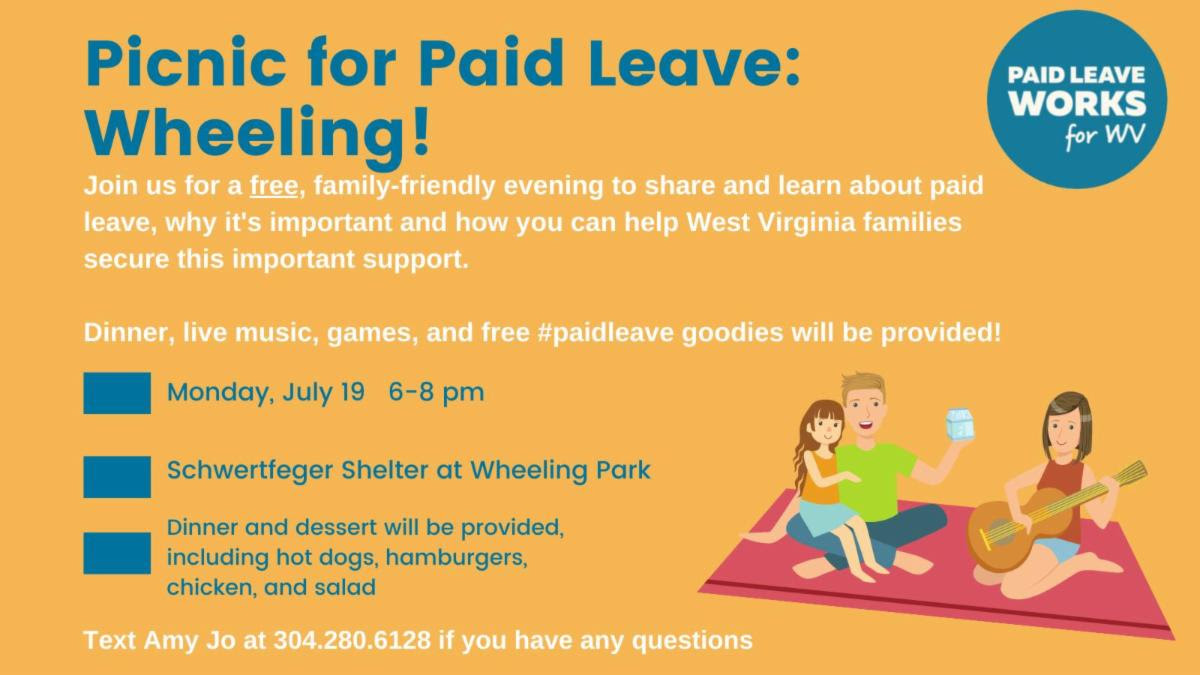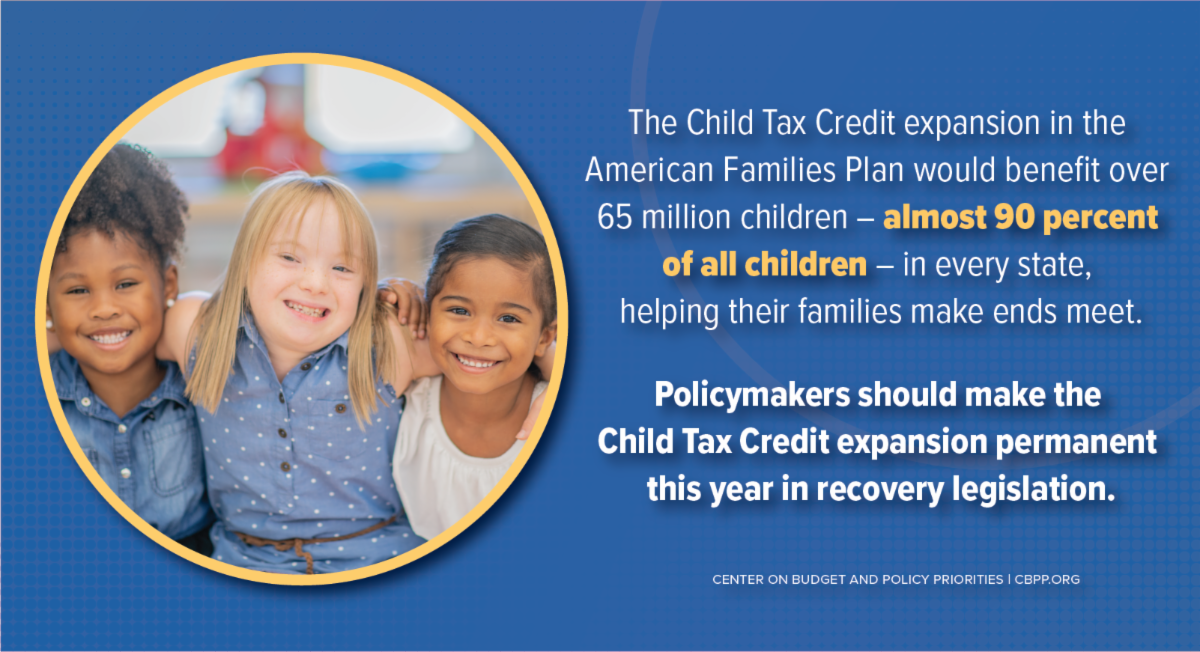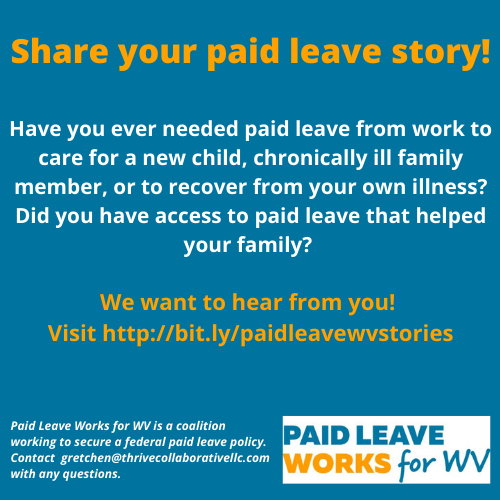West Virginia FY 2021 revenue collections are $413 million above estimates, but as of May 2021, the state was still down 36,000 jobs. How is this possible? Our new blog post breaks down a few significant contributors:
These crucial pieces of context cannot be ignored when thinking critically about West Virginia’s FY 2021 budget surplus. When these details are considered, it is clear that any appearance of current financial strength is merely a mirage. West Virginia’s reality is that, even given the “surplus,” the state budget is on shaky financial ground, with reserves running dry and future revenue growth significantly curtailed.
And a final note that cannot be overlooked: West Virginia’s strongest source of revenue is the personal income tax — which is projected to grow by 20% from FY 2022 to FY 2026 — the same source of revenue the state made multiple attempts to reduce or eliminate entirely this past legislative session.
Learn more in Sean’s full blog post here.

The closing of schools during the COVID-19 pandemic, while necessary, created a myriad of issues for learners and parents. The American Rescue Plan Act will provide the West Virginia Department of Education over $760 million to help address the impacts of the pandemic on students. In her first blog post for WVCBP, summer research associate Tamicah Owens explains how and why the unique needs of students in foster care should be considered when developing plans for use of these funds.
COVID-19 added yet another layer of uncertainty and instability into the lives of students living in foster care, and it will take innovative approaches to help them recover and learn. It is critical that direct input from foster parents is utilized to help develop the best path forward for these students.
Read Tamicah’s full blog post here.

Thanks to the American Rescue Plan Act, beginning on July 15, hundreds of thousands of West Virginia families will be eligible to receive enhanced child tax credit payments in monthly installments. A recent article on this development features insight from WVCBP executive director Kelly Allen. Excerpt below:
“Not only did they up the amount of the child tax credit the families will receive, but they also put in a provision to allow families to get those benefits monthly,” Allen said. “Just recognizing the economic challenges around the pandemic, but also the fact that raising a child is really expensive, and parents need help now.”
For families with kids under six, they’ll receive $300 per month. For families with kids 6-17, they’ll get $250 per month.
The payments begin on July 15 and will continue every month on the 15th.
“In West Virginia, it’s going to raise about 23,000 children out of poverty,” Allen said. “Nationwide, it could reduce poverty by almost half. And we know when kids have more economic security, it has obvious benefits right away. Putting food on the table, paying for childcare, those sorts of things.”
“I hope this year will really show the value of investing in kids and families, and Congress will take action to expand this program beyond this year.”
Read the full article here.

Food insecurity has long been a serious issue in West Virginia, and the pandemic has only exacerbated hunger in the state. We’re thrilled that the WV House of Delegates has established a formal, bipartisan working group to address this problem that impacts such a large number of West Virginians.
A recent article on this news features insight from WVCBP policy outreach director Seth DiStefano. Excerpt below:
The past year’s pandemic — causing disruption of school attendance, leading to thousands of layoffs and leading many households to wonder how they could pay their bills — demonstrated for many just how real an issue hunger is, DiStefano said.
“Something the pandemic has really taught us is that at any time we’re literally only one economic recession away from not being able to pay the rent, or not being able to keep the lights on or to ensure we have food for the week,” DiStefano said. “Hunger is something that has really impacted a lot more of our friends and neighbors than it had before the pandemic.
“One of the things we do very very well is feed children during the school year. We lead the country in free breakfast and lunch. When that was taken away, that really hurt a lot of families. You add on top of that people losing their jobs left and right, and that really opened our eyes to just how important that backbone of the nutrition system is for kids.”
The working group can listen to West Virginians who have experienced food insecurity up close while also serving as a catalyst for public policy, DiStefano said.
“There’s a lot of people here who have been very serious in their desire to address hunger from a policy perspective,” he said. “In many ways hunger is a policy choice and there are absolutely things we can do as a community and a state from a public policy perspective to address hunger.”
Read the full article here.

Recent polling data shows that rural voters overwhelmingly support the idea of corporations and the wealthy paying their fair share in taxes. A new article with insight from WVCBP executive director Kelly Allen and West Virginians for Affordable Health Care executive director Dr. Jessie Ice provides further details on the popularity of the tax reform proposals included in the American Jobs Plan. Excerpt below:
The American Jobs Plan includes several tax-code changes for only the highest-income Americans, many of whom now pay little or no tax. It would increase the personal income tax rate from 37% to 39.6% for those with annual incomes above $452,000, and change how capital gains and stock dividends are taxed for millionaires.
Dr. Jessie Ice, executive director of West Virginians for Affordable Health Care, believes the changes would raise enough to support major investments in health care, infrastructure, clean energy and education.
“If corporations paid their fair share in taxes, our nation could afford to pay for programs that help working families struggling to make ends meet every day,” Ice asserted.
According to the poll, 63% of rural voters support raising taxes on the wealthy and corporations in general, 59% support raising them on those earning more than $400,000 a year, and 55% support raising the corporate tax rate to 28%.
Allen said the poll highlights the nation’s two-tiered tax system.
“One is for ordinary people, working people, the vast majority of us who earn our money through wages. And then, the other is for the very, very wealthy, who make most of their money through the ownership of publicly traded assets, private businesses or other forms of capital,” Allen outlined.
She added President Joe Biden’s proposed tax changes would affect less than 1% of taxpayers nationwide, and only about 600 West Virginians.
Read the full article here.

Wheeling folks! Join the Paid Leave Works for WV coalition for a free, family-friendly evening to share and learn about paid leave, why it’s important, and how you can help West Virginia families secure this important support.
The coalition will provide free food, live music, games, and more. Join them on Monday, July 19 from 6-8pm in Wheeling Park!
RSVP to the Facebook event here.

The Food for All coalition — along with 150+ signees including charitable food access agencies, food system practitioners, nutrition and health care professionals, directly impacted constituents, and more — have written Senators Manchin & Capito to vote to pass the American Families Plan and provide critical support to address food insecurity and poverty in West Virginia. This initiative would significantly reduce the food access barriers and burdens faced by hundreds of thousands of households in our state.
You can read the full letter here.
And on a lighter note, the coalition would like to welcome you to their summer book club event! Join the group as they continue to advance discussions about our food system and how we can collectively build a future in which everyone has the right to nutritious food.
The book club will meet to discuss Octavia Butler’s Parable of the Sower on August 13 and August 27 at 12pm EST. Register here to receive details and call-in information.

The American Rescue Plan authorized significant but temporary changes to the Child Tax Credit. Here are four changes that might help you with the financial burden of raising a family:
1. The credit amount has been increased. The American Rescue Plan increased the amount of the Child Tax Credit from $2,000 to $3,600 for children under age 6, and $3,000 for other children under age 18.
2. The credit’s scope has been expanded. Children 17 years old and younger, as opposed to 16 years old and younger, will now be covered by the Child Tax Credit.
3. Credit amounts will be made through advance payments during 2021. Individuals eligible for a 2021 Child Tax Credit will receive advance payments of the individual’s credit, which the IRS and the Bureau of the Fiscal Service will make through periodic payments from July 1 to December 31, 2021. This change will allow struggling families to receive financial assistance now, rather than waiting until the 2022 tax filing season to receive the Child Tax Credit benefit.
4. The credit is now fully refundable. By making the Child Tax Credit fully refundable, low- income households will be entitled to receive the full credit benefit, as significantly expanded and increased by the American Rescue Plan.
If any of these circumstances apply to you, we’d love to hear how your family will be impacted! Please let us know by taking our survey here.

President Biden’s American Families Plan (AFP) proposal features major investments in K-12 education, child care, higher education, health care, and paid leave, as well as extended tax cuts for families and workers with children.
The AFP also includes revenue-raising proposals that would affect only very high-income taxpayers. And while the benefits of the AFP would be broadly shared, these tax increases would impact only .01 percent of West Virginia taxpayers — the smallest share in the nation — and work toward a tax system that raises more adequate revenue from those who have seen disproportionate income wealth gains in recent decades.
Join us in urging Senators Manchin and Capito to support the AFP and do their part to invest in West Virginia’s economic recovery and fund our future by sending them a letter here.
Find details of how the AFP benefits West Virginia children, workers, families, uninsured individuals, and veterans in our Twitter thread.
Learn more about how the AFP would serve as equitable tax reform in Sean’s full blog post.

Paid Leave Works for WV (PLWWV) is a broad coalition of stakeholders focused on advocating for a robust paid family and medical leave policy that ensures no one has to choose between their job and caring for themselves or a loved one.
The coalition is looking to collect stories from across the Mountain State. If you and your family have benefited from paid leave or have struggled due to lack of access to paid leave, please share your story and help us advocate to make this policy available for all West Virginians. We encourage you to share the form with relevant friends and family members, too!
PLWWV has also begun a letter writing campaign to urge Senators Manchin and Capito to prioritize paid family and medical leave. You can send a letter here.
